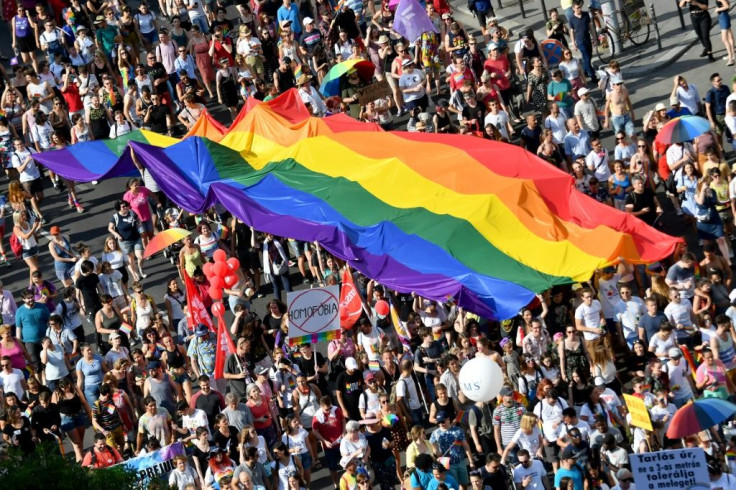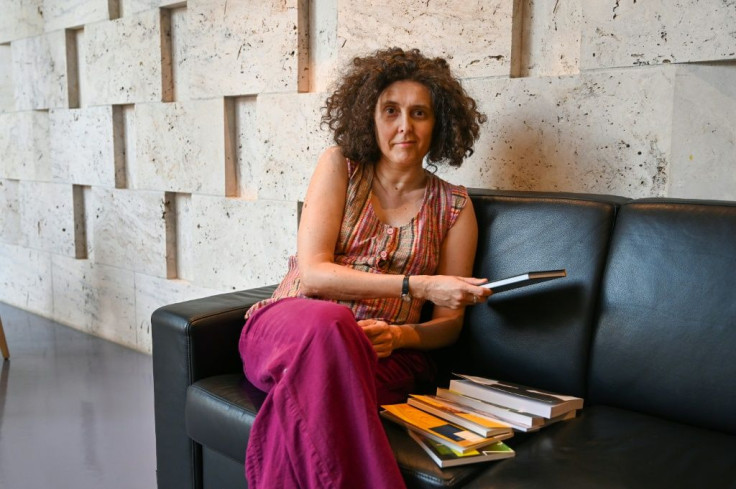Hungarian Civil Groups Protest Against 'Homophobic' Law
Hungarian civil organisations protested an anti-paedophilia bill that came into force on Thursday as "homophobic", after the EU also expressed its outrage over the law.
Introduced by Prime Minister Viktor Orban's ruling Fidesz party, the law was originally aimed at toughening punishments for child abuse.
But late modifications included a ban on the "display or promotion" of homosexuality and gender reassignment to under-18s, as well as restrictions on sex education in schools and media and advertising content deemed to be targeting minors.
"This law conflates crimes committed against children with the LGBTQ community in a wicked and mendacious way," David Vig, head of Amnesty International Hungary, told reporters in front of a symbolic 10-metre-high (33-foot) rainbow-coloured heart in Budapest.

"We won't change any of our LGBTQ educational programmes or campaigns because of a homophobic and transphobic bill," he said.
Luca Dudits, a board member of the LGBTQ rights group Hatter Society, blasted Orban for "removing rights" from citizens while portraying himself abroad as a "freedom-fighter".

Leaders from 17 EU countries also condemned the law last month for discriminating based on sexual orientation, while EU chief Ursula von der Leyen called it "a disgrace" during a European Parliament debate on Wednesday.
It "flies in the face of the values of the European Union," said von der Leyen, warning Budapest that it must "rectify" the legislation or face consequences.
Orban has portrayed the bill as about "child protection" and says that, according to the EU Charter, Brussels has no right to interfere in how Hungarian children are raised.
"The European Parliament and European Commission want LGBTQ activists to be admitted to schools and kindergartens, we don't want that," he said Thursday.
While the measures have been compared to Russia's 2013 bill that bans "gay propaganda" for minors, lawyers have said that it is not clear yet what sanctions will be meted out for breaking the law.
Television channel RTL Klub has already covered its posters on public transport advertising a popular soap opera that include an image of a gay couple.
"We are concerned that the law seriously infringes freedom of speech and discriminates against non-heterosexual members of society," the channel said in a sticker covering the original poster.
"Teachers will be afraid to invite us to their schools now," Dorottya Redai, an LGBTQ activist who holds talks on homophobia and bullying, told AFP.
Local media has also reported several homophobic attacks since the law was adopted last month, leading LGBTQ leaders to fear an uptick in physical and verbal assaults.
© Copyright AFP 2024. All rights reserved.





















